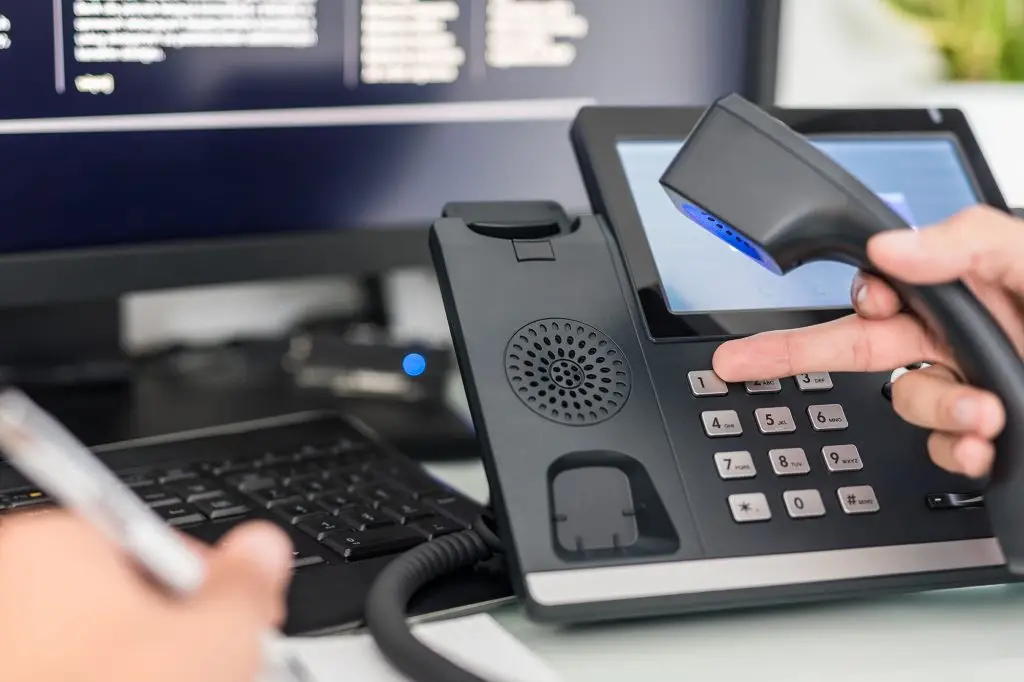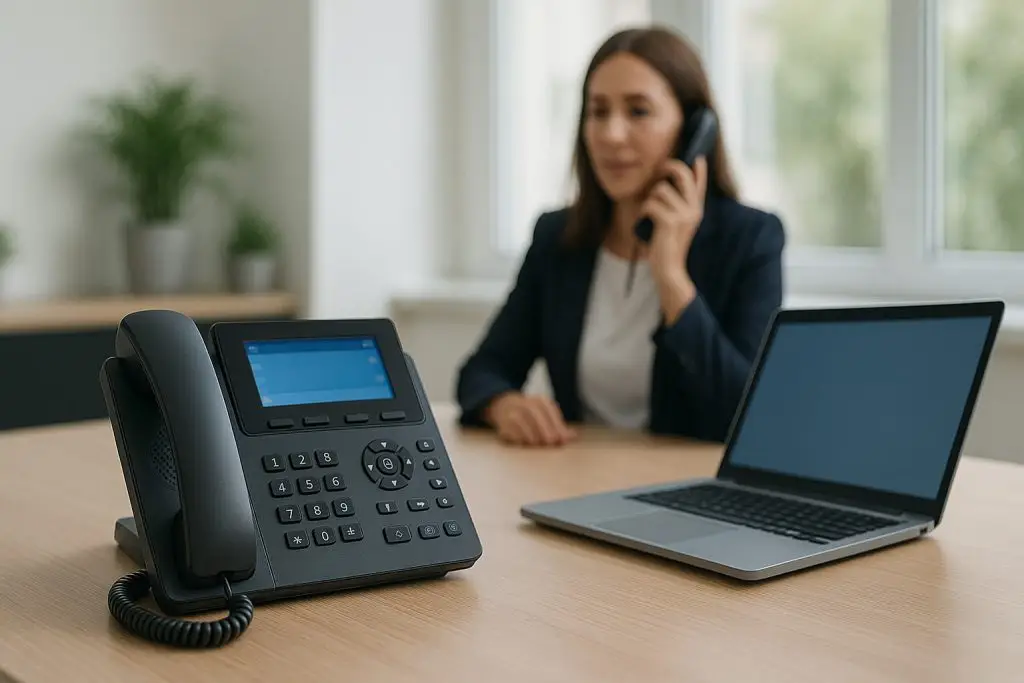
Resilient, Secure Cellular Connectivity.
No matter your connectivity requirements in the security sector, ensuring your systems remain online is essential. From CCTV towers protecting valuable assets, to body cameras that demand strong connections for real-time streaming, to lone workers operating in remote railway environments, uninterrupted connectivity is critical for safety, performance, and peace of mind.
Why Security Firms Choose Titus
Stay Connected Anywhere
Your team can handle calls on-site, in vehicles, or from a control room with no drop in quality.
Easy to Scale Up
Add new lines or sites quickly as your contracts grow, with no disruption to daily work.
Built-In Support
Get reliable help when you need it, so your phone system stays working when it matters most.
Need Help Choosing the Right Telecom Solution?
Use the form below to tell us what you need help with. Whether you’re setting up business telecoms for the first time or reviewing your current setup, we’ll give you a clear, useful answer to help you make the right decision.
Keeping Police Teams Connected
The Challenge:
A Northern police constabulary needed a better way to keep officers connected in areas with patchy mobile coverage. Their single-network SIM cards often dropped out, risking delays in frontline communication.
What Titus Did:
Titus supplied multi-network SIM cards that switch seamlessly to the strongest available signal. This gave the force reliable, always-on connectivity across their entire region – improving response times and daily operations.
See What Our Clients Are Saying
I use Titus Telecom for my personal mobile phone, I was so impressed with the service, I switched my internet and phones for my small business to them. Everything works as it should, but the standout for me is the service Titus provide. The installation of the phone system came with face-to-face training and Karen was more than happy to hang around and check everyone in the team was happy with the new handsets. Karen helped set everything up including landlines transferring to mobiles via an app, voice mail and holiday closure messages. The team at Titus are really responsive – highly recommended.
Fantastic company! Super helpful and knowledgeable and i find unlike most other suppliers Titus constantly try to save you money rather than cost you more! It is really quite lovely. Biggest praise to Karen who literally bends over backwards to make sure we are happy and any little issues are generally resolved in minutes! 1st class service- would 100% recommend!
Very good customer service and well-priced. Would definitely recommend.
Security Telecom solutions
Reliable telecom solutions covering broadband, VoIP, phone systems, mobile, and IoT – built to support how you work.
Security Companies: Getting Your Phone System Right
If you run a security company, you know how critical clear, reliable communication is.
A modern phone system does more than handle calls – it helps you manage teams, keep costs down, and adapt as your business changes.
This article explains what you should think about, from VoIP to PBX, cloud options, remote working, and how to avoid hidden costs.
1. What Should a Security Firm Look For?
Not all phone systems suit a security firm’s daily demands. You need more than a simple handset on a desk.
Security staff may be on the move, on-site, or working from a control room. Your phone system must help you stay connected without fuss.
A traditional landline telephone system is becoming less practical for many firms. With the shift to digital, many are moving away from traditional phone lines and copper cables, favouring systems that use voice over internet protocol. VoIP makes it easier to scale, update features, and link multiple sites.
2. Why VoIP Makes Sense for Security
VoIP isn’t just a buzzword. For many security companies, it’s the simplest way to keep calls flowing without high costs.
Because VoIP runs on your internet connection, you don’t need separate phone lines for every desk or guard post.
When you combine VoIP phone systems with SIP trunking or an IP PBX, you can handle calls for multiple premises from one system.
You get features like call forwarding, voicemail, and conferencing. It works whether you have a small business with a single office or a chain of sites.
3. PBX and 3CX: Do You Need Them?
A PBX (Private Branch Exchange) is a central part of many security companies’ setups. It routes calls, manages internal extensions, and handles voice mailboxes.
Some firms prefer 3CX, a software-based PBX that works on existing computers and mobiles.
This flexibility means staff can take calls through a desktop app, mobile phone, or softphone. It’s helpful if you’re working from home or splitting your team across sites.
When integrated well, it keeps your communication tidy and your response times quick.
4. Is a Cloud Phone System Better?
Plenty of security firms now choose cloud phone systems because they remove the headache of on-premises hardware.
Calls run through a cloud-based network, so you don’t have to maintain copper or PSTN lines on-site.
A cloud phone system works well if your teams move around. As long as you’ve got reliable business internet, staff can make or take calls from a mobile, laptop, or dedicated handset.
Plus, it’s easier to adjust capacity – handy if you take on seasonal contracts or expand your premises.
5. What About Entry Phone Systems?
Security businesses often need entry phone systems for gates, doors, or reception areas.
These are more than just buzzers. A good setup lets you link your entry phones directly into your main PBX or VoIP system.
When someone calls in, you can route them straight to the right desk or control room. For larger sites, that means fewer missed visitors and tighter control over who gets access.
If you already have a communications platform in place, it should be simple to add these devices without major rework.
6. Handling Remote Working
Remote working isn’t just for office staff anymore. Many security firms use mobile patrols, off-site monitoring, or home-based staff. Your phone system should support this.
With VoIP or a cloud-based system, your team can use instant messaging, video conferencing, and call forwarding wherever they are.
This flexibility boosts customer satisfaction. A missed call could be a lost client or a security risk.
A system that lets remote workers answer and transfer calls keeps everyone in the loop.
7. Installation and Maintenance: Keep It Simple
Any system you choose needs to be straightforward to install and maintain. Some security companies keep an on-premises PBX, but more are switching to software-based or cloud systems to avoid hardware costs.
With a good provider, you won’t need to worry about hidden costs popping up after installation.
Look for managed IT support if you don’t have in-house expertise. That way, if your telephone system is working below par, someone will fix it fast – no waiting around.
8. The Cost Factor: Will It Save Money?
One reason VoIP has taken off is pricing. Using your internet connection instead of traditional phone lines brings cost savings.
You don’t have to pay for separate copper cables, and adding extra lines is simple.
Keep an eye on hidden costs. Does your provider charge extra for voicemail, conferencing, or call recording?
Make sure you compare like for like when choosing between providers, a clear contract can stop surprises later.
9. Which Features Are Worth Having?
There’s no point paying for advanced features you’ll never use. For security work, useful extras include:
Call forwarding to mobiles or other sites
Call recording for compliance or training
Voicemail that emails you recordings
Video conferencing if you need face-to-face updates
Integration with Microsoft or Azure if you run other software
Full control through a simple admin dashboard
These let you collaborate better and keep your business communication consistent. The right features help you deliver good service with fewer missed calls or delays.
10. Choosing a Provider You Can Trust
Picking a telecom provider is about more than getting the cheapest price. Look for one that understands security services and how your staff work.
They should be clear about what’s on-premises and what’s cloud-based.
Check if they offer managed IT support, reliable connectivity, and a system that scales as you grow.
If you need entry phone systems, VoIP phones, or PBX, they should be able to install and maintain them without hassle.






